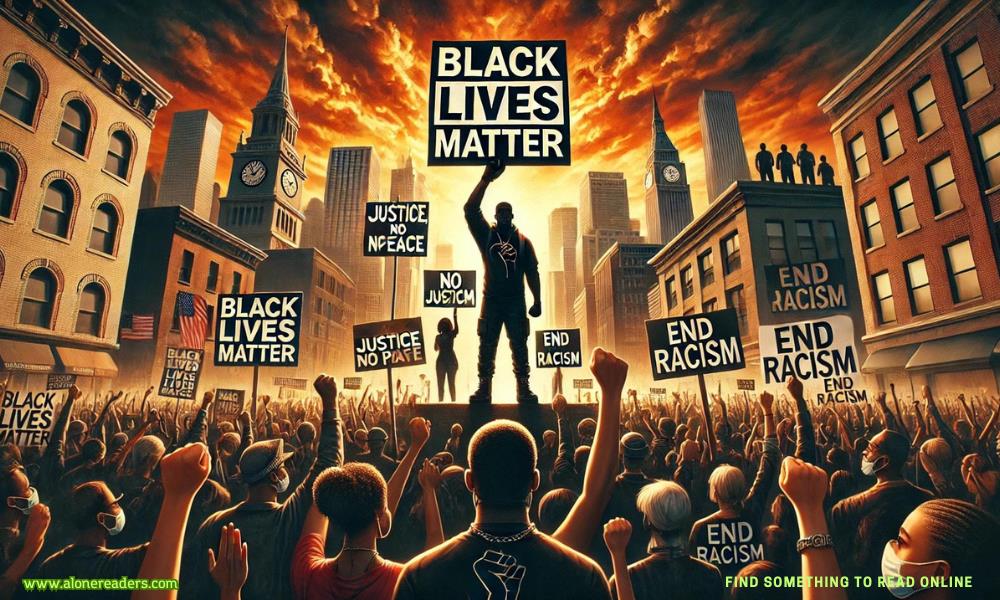
The Black Lives Matter (BLM) movement emerged in 2013 as a response to the acquittal of George Zimmerman in the shooting death of Trayvon Martin, a Black teenager in Florida. The hashtag #BlackLivesMatter quickly gained traction on social media, sparking conversations about the systemic racism and violence faced by Black people in the United States. This movement has since evolved into a global call for justice, equality, and an end to police brutality, bringing millions together in solidarity against racial injustice.
The roots of the Black Lives Matter movement can be traced back to the long history of racial discrimination and oppression in the United States. From slavery to segregation, and from the Civil Rights Movement to the present day, Black Americans have consistently faced systemic inequalities that have denied them basic rights and freedoms. The BLM movement seeks to challenge these deep-seated injustices by advocating for the dignity, respect, and safety of Black lives.
One of the defining moments for the Black Lives Matter movement was the killing of Michael Brown in Ferguson, Missouri, in 2014. Brown, an unarmed Black teenager, was shot by a white police officer, Darren Wilson, sparking widespread protests and civil unrest. The incident brought national attention to the issue of police violence against Black people, leading to a broader conversation about the need for police reform and accountability. The Ferguson protests marked a turning point for the BLM movement, as it became a symbol of resistance against racial oppression.
Over the years, the Black Lives Matter movement has expanded its focus beyond police brutality to include a wide range of issues affecting Black communities. These include mass incarceration, economic inequality, and access to quality education and healthcare. BLM advocates for policies that address these systemic issues and promote the well-being of Black people. The movement has also emphasized the importance of intersectionality, recognizing that the struggle for racial justice is connected to other forms of oppression, such as gender and LGBTQ+ discrimination.
The movement gained renewed momentum in 2020 following the murder of George Floyd, a Black man who died after a white police officer kneeled on his neck for over nine minutes. The video of Floyd's death, captured by a bystander, went viral and sparked outrage around the world. Protests erupted in cities across the United States and globally, with millions of people taking to the streets to demand justice for George Floyd and an end to systemic racism. The scale and intensity of the protests were unprecedented, highlighting the widespread anger and frustration over the continued devaluation of Black lives.
In addition to street protests, the Black Lives Matter movement has also harnessed the power of social media to mobilize support and raise awareness. The hashtag #BlackLivesMatter has become a rallying cry for those advocating for racial justice, and the movement's online presence has helped to amplify the voices of marginalized communities. Social media has played a crucial role in documenting instances of police violence and holding those in power accountable. It has also provided a platform for Black activists and allies to share resources, organize events, and educate the public about issues affecting Black people.
The Black Lives Matter movement has faced criticism and opposition from some quarters, with detractors accusing it of being anti-police or divisive. However, BLM leaders have consistently emphasized that the movement is not anti-police, but rather anti-police brutality. They argue that the goal is not to vilify law enforcement, but to demand accountability and justice for those who have been harmed by police violence. The movement also seeks to challenge the systemic racism that pervades many institutions in the United States, including the criminal justice system.
Despite the challenges and setbacks, the Black Lives Matter movement has had a profound impact on the national conversation about race and justice in the United States. It has brought issues of racial inequality to the forefront of public discourse, forcing policymakers, institutions, and individuals to confront the realities of systemic racism. The movement has also inspired a new generation of activists who are committed to fighting for social justice and equality.
The legacy of the Black Lives Matter movement is still being written, but its influence is undeniable. It has sparked a global movement for racial justice and inspired countless individuals to take action against racial oppression. As the fight for equality continues, the Black Lives Matter movement remains a powerful force for change, reminding us that the struggle for racial justice is far from over. The movement's message is clear: Black lives matter, and the fight for their recognition and protection is a fight for the fundamental principles of justice and humanity.
In conclusion, the Black Lives Matter movement represents a critical chapter in the ongoing struggle for racial equality in the United States. It has challenged the nation to confront its history of racial injustice and to take meaningful steps toward a more just and equitable society. As the movement continues to evolve, its impact will be felt for generations to come, serving as a testament to the power of collective action and the enduring pursuit of justice.